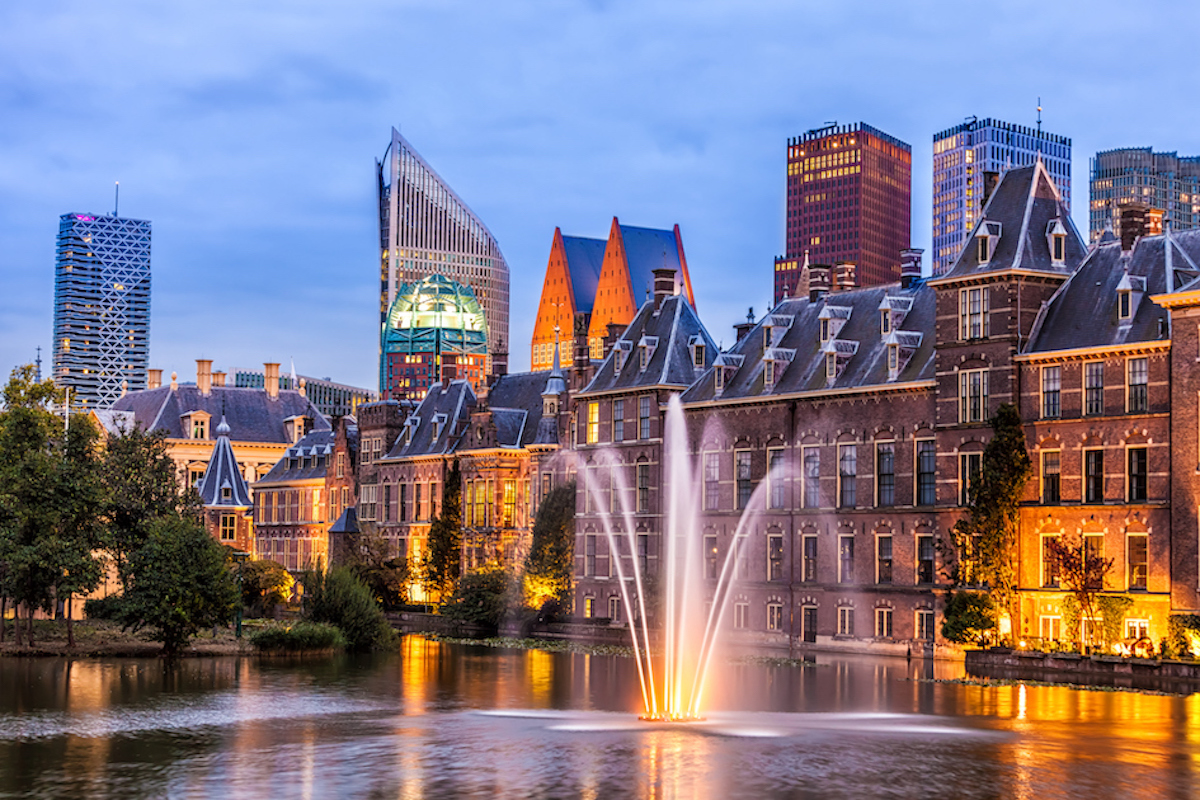How EU member countries are tackling food sustainability and security with legislations and initiatives

Food sustainability and security are serious global issues affecting all countries. On 20 May 2020 the EU announced its Farm to Fork strategy, an initiative launched as part of its Green Deal to rethink and improve its food value chain, to make it more sustainable and secure.
The Farm to Fork strategy highlights key goals to produce and consume food sustainably and reduce the carbon footprint of the EU member states, such as reversing biodiversity loss, having a neutral or positive climate impact, ensuring food security, improving nutrition, public health, food affordability and fairness, eradicating food poverty, cutting down on food waste, diminishing the consumption of animal products, supporting organic farming and reducing pesticide use.
Furthermore, in December 2022 MEPs agreed a preliminary deal with EU governments to implement a law to stop companies selling goods within the European Union sourced from degraded or deforested land anywhere in the world.
At national level all members of the European Union have targets to meet. There are many initiatives taking place in each country, ranging from cutting down meat, fish, and dairy consumption and promoting plant-based diets to taxing food waste and introducing eco-labelling. We take a look at seven EU countries who have recently implemented programmes and legislations to reduce their carbon footprint and improve their sustainability and quality of life.
Denmark

Despite being one of the highest consumers of meat in Europe, Denmark has been implementing initiatives and legislations in a bid to cut its carbon footprint. In October 2021, as part of a new climate agreement for food and agriculture, the Danish government announced plans to invest 1.25 billion kroner (£170.5 million) in the research, development and production of plant-based food, with 675 million kroner (just under £77 million) to be allocated to the Fund for Plant-based Food Products for the development and promotion of vegan food over nine years. 580 million kroner (£66M), payable in bonuses to farmers for growing crops to be used for plant-based protein for human consumption, was allocated to the five-year-long Plant-Based Eco-Scheme. With EU funding, Denmark also said it intended to invest in machines for the processing of plant-based protein.
The nordic country also committed to cut its agriculture and forestry GHG emissions by 55% and 65% respectively by 2030, compared with levels in 1990, as well as a cut in nitrogen emissions by 10,800 tonnes by 2027.
In April 2022 The Denmark Ministry of Food, Agriculture and Fisheries announced plans to spend DKK 9 million (around £1M) on a state-controlled climate labelling system to help shoppers make environmentally friendly choices when purchasing food. Food, Agriculture and Fisheries Minister Rasmus Prehn said of the move: “We can become the first country in the world to have a state-controlled climate label. We are at the forefront of the global scene, showing the way forward in the green transition.”
This February, the Danish Climate Council suggested that Danes replace two thirds of their meat products with vegetables and pulses and recommended imposing a 33% tax on beef. It also recommended a reduction of greenhouse gas emissions from agriculture, building wind and solar power and phasing out gas furnaces in households.
Italy

Better known for fashion, design, and art rather than its food scene, in 2014 the northern city of Milan launched the Milan Urban Food Policy Pact (MUFPP), an agreement among cities all over the globe to develop sustainable food systems and improve food security and fair distribution. Its aim is “to develop sustainable food systems that are inclusive, resilient, safe and diverse, that provide healthy and affordable food to all people in a human rights-based framework, that minimise waste and conserve biodiversity while adapting to and mitigating impacts of climate change”. Some 260 cities all over the world have signed up so far.
In October 2021 Milan won the EarthShot Prize’s Build a Waste-Free World award for its Local Food Hubs project, an initiative created to redistribute surplus food to those in need, effectively cutting down food waste whilst feeding those in need.
Mayor of Milan Giuseppe Sala wrote in Reuters: “The importance of cities to food systems lie in their shared experiences. Cities committed to healthy, sustainable and inclusive food systems have a lot in common across the continents, from the challenges of urban inequality to the pressure on resources and opportunity for sustainable growth.“
Following Milan’s examples, many other Italian cities started local and regional projects in a bid to improve the sustainability and security of the country’s food system, with the WWF getting involved in several programmes.
Italy has also reduced its emissions at a faster pace than the EU average since 2005. By 2020 they were 13% lower compared to 2005, with energy industry emissions down by 42% between 2005 and 2019, although the country’s GHG from agriculture were lagging behind, showing a lower reduction.
This March, Prime Minister Giorgia Meloni visited the UAE and a Declaration of Intent between the United Arab Emirates and Italy in which the two countries pledged to cooperate on cutting down emissions, investing in new technologies and finding low carbon solutions, was announced.
The Netherlands

In 2019, The Netherlands laid down the Climate Plan and the Climate Agreement to set out the country’s environmental goals, which include cutting down greenhouse gas emissions by 49% by 2030. In the Plan, the Government sets out objectives to promote sustainable food production. These include: funding research and helping companies to transition to greener methodologies; minimising the impact of food production on the environment; establishing the Dutch Alliance for Sustainable Food in collaboration with Dutch Food Retail Association, the Dutch Food Industry Federation (FNLI), the Association of Dutch Catering Organisations (VENECA) and the Dutch Federation of Agricultural and Horticultural Organisations (LTO); improving animal welfare and making livestock farming more sustainable by cutting down on diesel used on dairy farms, reducing soybean in animal feed and instead investing in alternative proteins such as insects, seaweed, microalgae, nuts, pulses and mushrooms.
As part of the Dutch Climate Agreement, in 2022 the Ministry of Agriculture, Nature and Food Quality (LNV) and Wageningen University and Research in collaboration with 25 Dutch parties, including supermarkets and food processing companies, started researching a methodology to assess the environmental impact of food. Like Denmark, the Netherlands are looking at implementing a food labelling system to measure the carbon footprint and green credentials of food, to allow consumers to make better informed, eco-friendly choices when shopping.
In March 2022 the Netherlands’ House of Representatives approved a legislation to make the sampling of cultured meat legal in the country, and the following month the government announced an investment of €60 million in the development of its cellular agriculture.
In September of the same year, the Dutch city of Haarlem announced that it would ban adverts promoting meat products from public spaces, including buses, shelters and screens from 2024, in a bid to reduce its consumption and limit greenhouse gas emissions.
Spain

In 2022, Spain’s Agency for Food Safety and Nutrition (AESAN) published its health and sustainability dietary guidelines encouraging its citizens to decrease their consumption of meat to a maximum of three portions a week. The guidelines urge individuals to swap their beloved meat (Spain has one of the highest consumptions in Europe) and other animal products for plant-based dishes packed with vegetables and legumes. AESAN said that switching some animal-based meals to plant-based ones could help to improve both human health and the environment. “The Scientific Committee believes that the adoption by the Spanish population of a varied and balanced diet, healthy and sustainable, can improve their health and well-being, while reducing the environmental impact”, the report said.
Last June Spain passed a law to help tackle the issue of food waste. Spanish supermarkets and restaurants could face steep fines – between €2,000 and €60,000 (£1,700 and £51,000) – for throwing away unsold food.
Under the legislation, instead of disposing of surplus food, restaurants can give customers doggy bags so they can take leftovers home instead of them being thrown away. Restaurants are encouraged to donate surplus food to charities and food banks and to use it to develop seasonal dishes. Supermarkets can also donate unsold food, and give away products that have reached their sell-by date.
Where businesses have fruit that has become too ripe to be sold, they are advised to turn them into jams and juices. Once the produce has reached the stage of being edible, it should be composted or used in animal feed, biofuel, or fertilisers.
The new legislation applies to all food stores larger than 1,300-square-metres.
The Spanish government also said it will implement new educational campaigns to reduce food waste in households.
Germany

Despite being one of the highest consumers and producers of meat, Germany has a high number of vegans, and individuals following a plant-based or flexitarian diet. Some of its cities, such as Berlin and Hamburg, are considered meccas for vegan food, with many restaurants and cafes being fully plant-based, or having a large number of options on their menus. The country also boasts a popular, fully vegan supermarket chain, aptly named Veganz. Germans might love wurst, but they are also eco-conscious. In 2020 the Scientific Advisory Board on Agricultural Policy, Food and Consumer Health Protection to the German Federal Ministry of Food and Agriculture released the report Promoting sustainability in food consumption: developing an integrated food policy and creating fair food environments
The key recommendations included:
- Gradually introduce free meals in schools and preschools, with the mandatory adoption of quality standards, measures to encourage social interaction at mealtimes, regulation of competing catering services such as vending machines, and stronger food education.
- Steer the consumption of animal products to be “less and better” by abolishing the reduced rate of tax on animal products, eventually introducing a sustainability tax, introducing a mandatory climate label for all foods, conducting an information campaign to raise public awareness of food’s climate impacts, minimising the effects for lower income groups of the proposed higher taxes, monitoring whether reducing animal-source food consumption leads to harmful substitution effects, and accounting for the impacts on animal welfare of climate-oriented measures in livestock production.
- Use price incentives, with support for lower income households, to shift consumption towards healthy, sustainable options, with measures including a sugary beverage tax, lower taxes on fruit, vegetables and pulses, and eventually a specific sustainability tax on all foods.
- Reducing food poverty through measures to limit the adverse effects of the proposed changes to food taxes on lower income households, the introduction of free school and preschool meals, and better monitoring of food poverty.
- Provide reliable information on food sustainability, including through developing an effective labelling policy covering health, social, environmental and animal welfare dimensions. The health aspect includes promoting the introduction of the Nutri-Score system in Germany and across the EU (noting however the limitations of Nutri-Score) as well as promoting unprocessed foods not covered by Nutri-Score. Other measures include limiting advertising for unhealthy foods aimed at children, and supporting apps and other digital tools to promote sustainable food consumption.
- Calibrate social norms around food by making smaller portions sizes standard, taxing sugary beverages and considering the introduction of a legal requirement for retailers and bakeries to donate food that is still edible.
- Offer sustainable, healthy food in public institutions such as care homes and hospitals through adopting quality standards for catering and introducing nutritional screenings to certain patient clinics.
- Support organic farming in contexts where large benefits are expected, and also support other ‘intermediate’ forms of farming that may achieve environmental benefits relative to conventional systems but higher yields than organic systems. Consider the appropriate use of technologies such as genome editing and robotics in cases where they may offer sustainability benefits.
- Ensure that food policies integrate four dimensions of sustainability: health, social aspects, environment and animal welfare.
France

France may have had some boeuf with the use of terms such as ‘steak’, ‘sausages’ and ‘bacon’ to describe plant-based products, trying to become the first country in Europe to ban such meaty nomenclature for vegan food, before the ruling was overturned, but the second largest producer of beef in Europe (after Russia) leads the way when it comes to food waste. In 2016 the country passed a groundbreaking law that forbids supermarkets to throw away unsold food, compelling them to donate it instead. The law was then extended to mass catering and food businesses with a turnover of more than €50 million.
In 2018 President Macron unveiled a €5bn investment plan for the country’s agricultural sector, encouraging farmers to embrace what he called a “cultural revolution”, to move away from EU subsidies and intensive production methods and to adopt environmentally-friendly farming techniques.
The same year it was also announced that by 2022 at least 50% of food bought by the French public sector had to be organic, locally produced or come with a quality label.
Child health is also top priority in France. With rising obesity numbers, ANSES (the French Agency for Food, Environmental and Occupational Health and Safety) updated its guidelines in 2017, recommending cutting down on meat (aside from poultry) and sugary drinks.
The same year France ranked number one in the Economist Intelligence Unit and the Barilla Center for Food and Nutrition’s Food Sustainability Index (‘FSI’).
Slovenia

Slovenia might be a small country but it it has big plans when it comes to its food system. Four of the country’s restaurants have been awarded the sustainability certificate Green Key for their approach to local and seasonal produce, food waste management and short supply chain. In 2017, the country adopted the Slovenian Development Strategy 2030, based upon the principle of ‘’A high quality of life for all’’, tackling issues such as food security and fairness, sustainability, good health for all, combatting poverty, improving mental health, and investing in technological advancements to boost its circular economy. The country has also been implementing a shift to green procurement to promote local and organic food production, as well as putting in place agricultural practices for large and family farms to protect and promote traditional cuisine, to foster sustainable forest management and to preserve farmed landscape and biodiversity.








